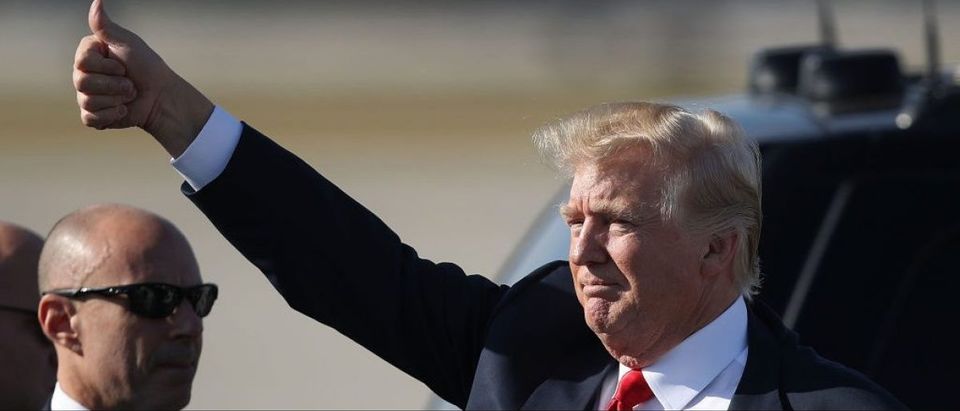President Donald Trump is highly critical of U.S. firms that move jobs overseas, but companies are now saying those jobs were never meant for Americans in the first place.
Financial statements reviewed by Axios reveal that reasons for moving labor overseas are not singularly motivated by the cheaper cost of production, but more so reflect corporate desire to tap into foreign markets. Firms are reportedly targeting products more and more to foreigner consumers, because less developed economies grow at a much faster pace than economies like the U.S.
Trump took aim at companies for moving overseas both on the campaign trail and in his first month in office. The president was especially harsh towards firms moving to Mexico and China. These economies, however, present intriguing opportunities for firms that are otherwise not as readily available in the U.S.
Take, for instance, the Chinese economy, which seems to perennially grow at over 6 percent, compared to the U.S.’s annual growth rate of around 2 percent. The ever-expanding pool of Chinese consumers, which now stands at a staggering 1 billion and includes a burgeoning middle-class, is also enticing for firms hoping to gain a greater market share and boost their bottom-lines.
Trump promised that when he became president, companies like “Apple” would be “making their products in the United States,” instead of in China. The president even suggested imposing a 45 percent tariff on Chinese goods to make the U.S. a more attractive place for Apple to produce its iPhones.
Apple saw China as an area ripe with opportunity long before Trump emerged on the U.S. political scene. By 2004, the company had already moved the majority of its manufacturing from the U.S. to China. Just over a decade later, in 2015, Apple secured its position as the most popular smart phone maker in the nation, and sold 58.4 million Apple devices in China that year.
While Apple reportedly asked two of the firms who manufacture its iPhones to consider moving production back to the U.S., the firm has yet to make a definitive move after Trump’s repeated threats.
In order to efficiently and effectively bring goods to foreign markets, companies are choosing to employ more workers abroad. These jobs were never meant for Americans in the first place, a fact represented in Starbucks’ choice to increase its foreign employment by 278 percent over the last decade to target new customers, Axios reports.
Since making that decision, the firm has experienced exponential growth. Starbucks sales soared by nearly $10 billion from 2012 to 2016, and its stock value went from $20 to over $60 a share in that same period. The firm is showing no plans of slowing down, despite Trump’s threats of tariffs or other financial penalties. Starbucks announced last December that it plans to open up 12,000 new stores globally by 2021, and projects a 10 percent increase in revenue during that period.
There is also a major challenge involved in deciphering the true motivations of various firms to move jobs overseas. Since there is no federal or legal requirement for publicly-traded companies to disclose where they employ their workers, it is exceedingly difficult, and, in some cases, nearly impossible, to identify which companies are the worst offenders. Without being able to properly identify the most aggressive culprits, Trump is likely to face some serious obstacles as he tries to push his “America First,” economic agenda.
The first major obstacle is that firms are moving labor and production abroad and are showing no signs of slowing down, a point perfectly exemplified by Starbucks and Apple. Even Trump’s victory with Carrier, speculated to have saved between 800 and 1,100 American jobs, still resulted in a net-1,300 job loss to Mexico.
The other obstacle Trump faces is that labor is becoming highly mechanized. Jobs typically filled by factory workers are now being replaced with machines. Mechanization will likely prove a very difficult, if not insurmountable, obstacle for Trump to overcome.
Send tips to robert@dailycallernewsfoundation.org
All content created by the Daily Caller News Foundation, an independent and nonpartisan newswire service, is available without charge to any legitimate news publisher that can provide a large audience. All republished articles must include our logo, our reporter’s byline and their DCNF affiliation. For any questions about our guidelines or partnering with us, please contact licensing@dailycallernewsfoundation.org.












